«Love or money? Money or love?»
I confess that I fell for the hype. With that cast—Dakota Johnson, Pedro Pascal, and Chris Evans—and the chemistry they displayed in every interview, Materialists earned a spot on my “must-see” list. And yes, at first it entertained me... but it wasn't what I expected. It tries to talk about relationships, how we connect with money, power, or the need for stability, but it falls short. Still, there was something that kept me watching: the sincerity with which the characters show their desires (no matter how absurd or questionable they may be). Although, in the end... I could only say: “What was that?” and move on.
So, here I share my honest opinion about Materialists 🍂. It contains some SPOILERS, as they are necessary to develop accurate criticism. And, I warn you, that beautiful cast was not enough to make the movie to my liking ☹️🥀.
Confieso que caí en el hype😬 Con ese elenco -Dakota Johnson, Pedro Pascal y Chris Evans- y la química que mostraban en cada entrevista, Materialists se ganó un lugar en mi lista de "tengo que verla ya". Y sí, al principio me entretuvo... pero no fue lo que esperaba. Intenta hablar de relaciones, de cómo nos vinculamos con el dinero, el poder o la necesidad de estabilidad, pero se queda corta. Aun así, hubo algo que me mantuvo viéndola: la sinceridad con la que los personajes muestran sus deseos (por más absurdos o cuestionables que sean). Aunque, al final... solo pude decir: "¿Qué fue esto?", y pasar la página. Así que, aquí les comparto mi sincera opinión acerca de Materialists 🍂 contiene algunos SPOILERS, dado que son necesarios para desarrollar críticas precisas. Y, les aviso, que ese bello cast no fue suficiente para que la película fuera de mi agrado☹️🥀«¿Amor o dinero? ¿Dinero o amor?»
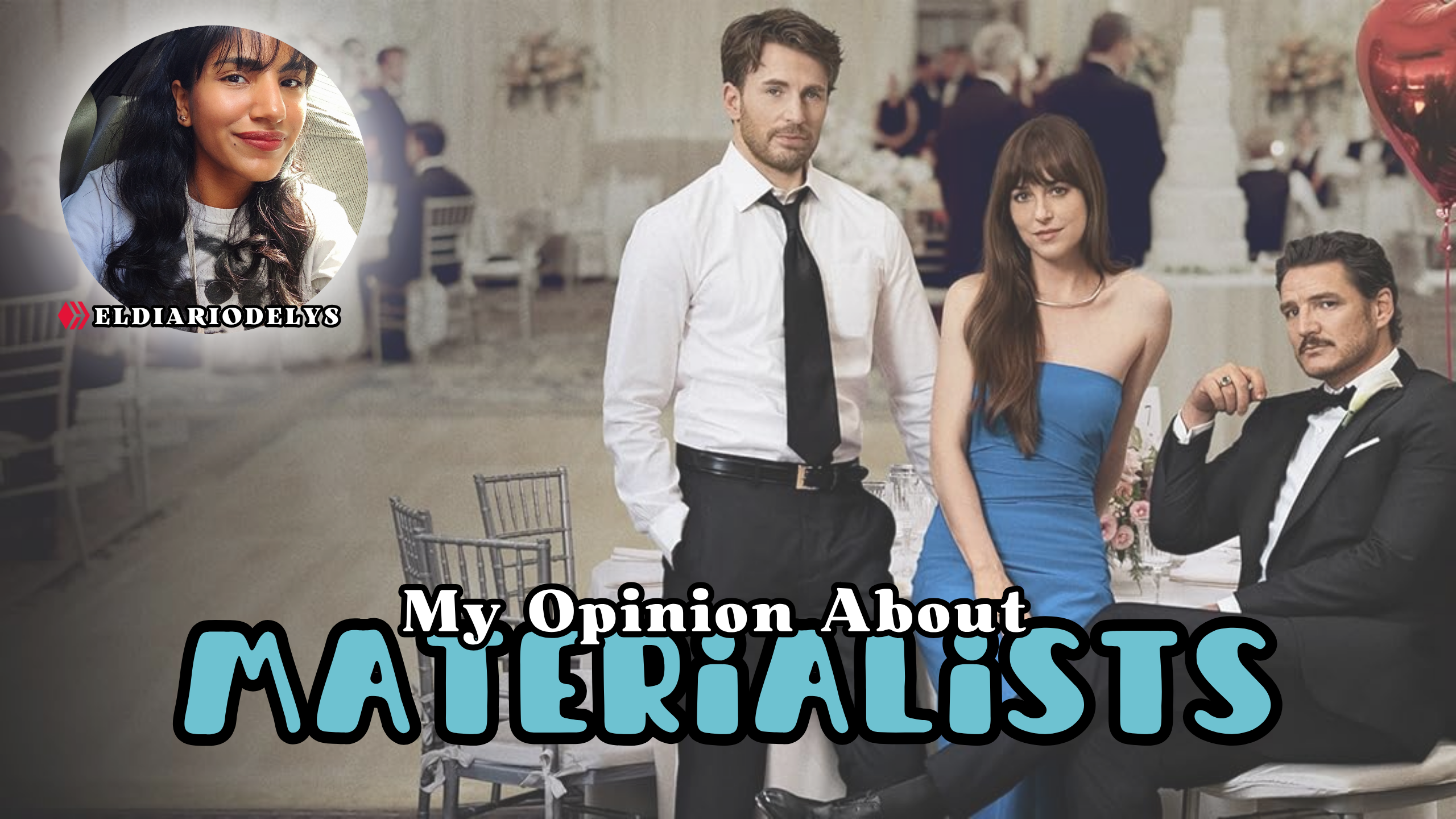 ---
---
What is it about?
The story revolves around Lucy, a matchmaker in New York who works to pair people who have grown tired of the endless cycle of failed dates, taking it upon herself to find them the “perfect match” they so desire. During one of her clients' weddings, she meets Harry (Pedro Pascal), a cultured and wealthy man who is looking for a wife and sees Lucy as a good match. However, at that same party, she reunites with John (Chris Evans), an old love that didn't work out due to financial differences. From there, a story unfolds that is neither a traditional romantic comedy nor a love triangle as such, but rather a... reflection?—or at least an attempt at one—on love, money, appearances, and what we really seek in a relationship.
La historia gira en torno a Lucy, una casamentera de New York que trabaja emparejando a personas que ya se cansaron del eterno ciclo de citas fallidas, encargándose de encontrarles ese "match perfecto" que tanto desean. Durante la boda de una de sus clientas, conoce a Harry (Pedro Pascal), un hombre culto y adinerado que busca una esposa y ve en Lucy un buen partido. Sin embargo, justo en esa misma fiesta, se reencuentra con John (Chris Evans), un viejo amor que no prosperó por diferencias económicas. A partir de ahí se teje una historia que no llega a ser una comedia romántica tradicional, ni un triángulo amoroso como tal, sino más bien una ¿reflexión? -o, al menos, buscar ser eso- sobre el amor, el dinero, las apariencias y lo que realmente buscamos en una relación.
¿De qué trata?
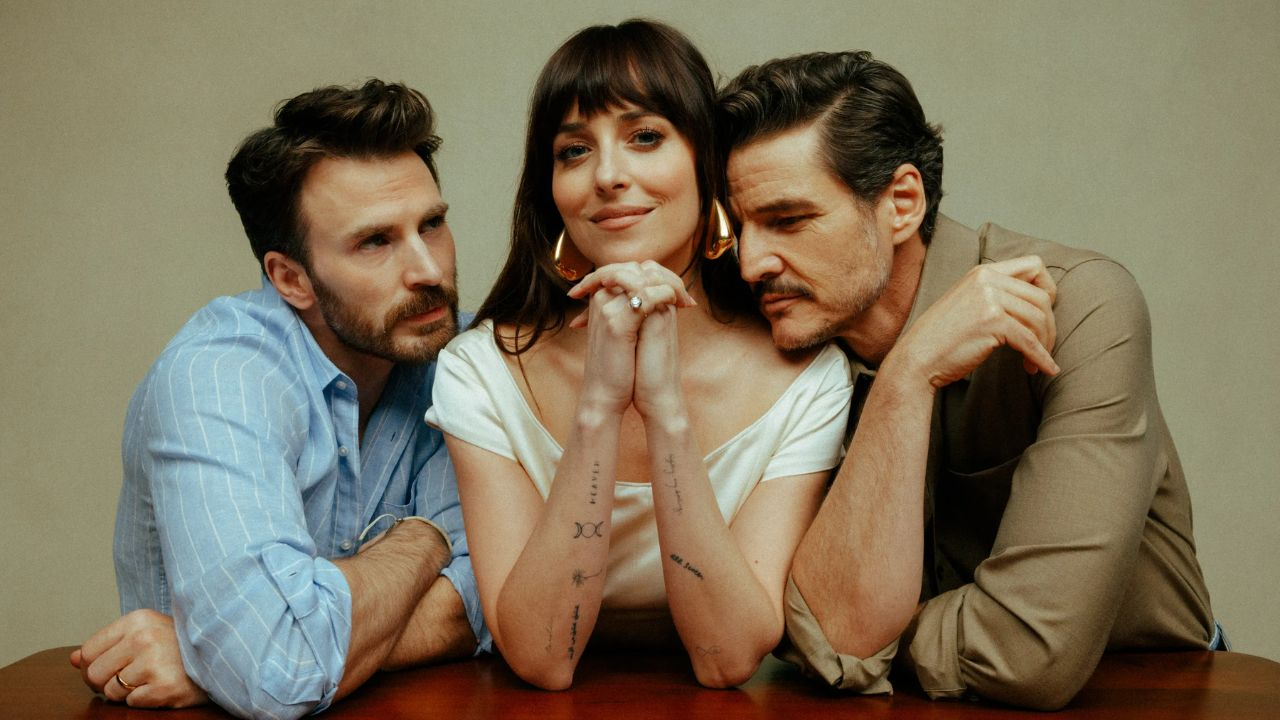 source
---
source
---
I completely understand the main criticism this film has received. I don't know if it was the fault of the publicity or simply the general expectations conveyed through social media, but everyone —including me— thought Materialists was a romantic comedy. And it's not. There's much more drama than comedy. So it was a bit disappointing for me, as I love a good romcom. But... Pedro Pascal and Chris Evans sharing the screen, how could I not give it a chance?🫢 And, honestly, I don't like drama movies, I really only finished watching it for the sake of the actors. However, I wouldn't consider it a terrible movie (there are much worse ones out there); I wouldn't watch it again, and I wouldn't recommend it to everyone. It's more of what I would call a “situational” movie, meaning it's ideal for certain situations in life.
Entiendo perfectamente la principal crítica que ha recibido esta película. No sé si fue culpa de la propaganda o simplemente de las expectativas general que se transmitió a través de redes, pero todo el mundo -incluyéndome- creyó que Materialists era una comedia romántica. Y no lo es. Hay mucho más drama, que comedia. Así que fue un poco decepcionante para mí, que amo una buena romcom. Pero... Pedro Pascal y Chris Evans compartiendo pantalla, ¿cómo no darle una oportunidad?🫢 Y, sinceramente, no me gustan las películas de drama, realmente terminé de verla por amor a los actores. Sin embargo, tampoco la consideraría una película pésima (hay muchas peores por ahí); tampoco la volvería a ver, y no la recomendaría a todos. Es más de ese tipo de película que denominaría "situacional", es decir, ideal para ciertas situaciones de la vida.
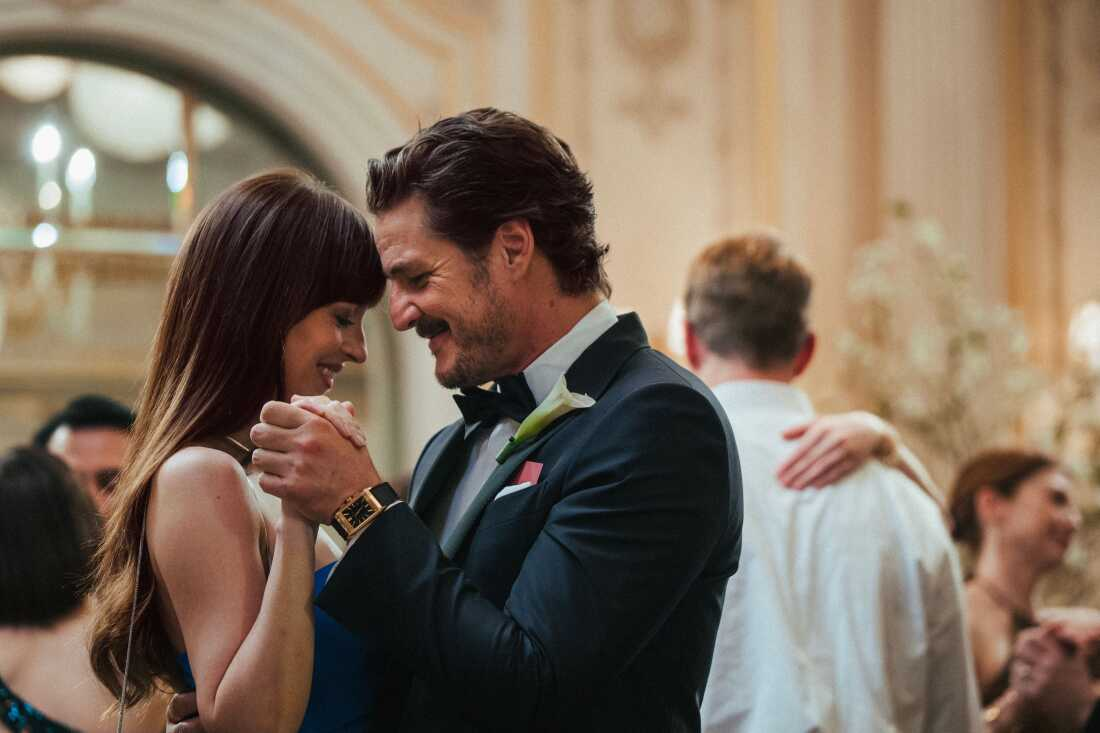 source
---
source
---
Interestingly, I liked the characters... but separately. Lucy was interesting, I liked her honesty with herself —at least in the first part of the film— she doesn't hide behind a facade, she knows she's materialistic and says so openly. But her romantic decisions left me with a strange feeling. Both men who orbit her life —John and Harry— are valuable characters, each in their own way, and I feel that she doesn't really love either of them. They represent different desires: one is the excitement of a dream, and the other is the promise of stability. And although that logic fits with the title of the film, I didn't feel a connection between the characters. In fact, there was more chemistry between the actors in promotional interviews than on screen. And something that bothered me was that it's never explained why Lucy is so radical about money. It's not about justifying her position, but about understanding what led her to be so calculating about everything.
Los personajes, curiosamente, me gustaron... pero por separado. Lucy fue interesante, me gustó su honestidad consigo misma -al menos la primera parte de la película-: no se esconde tras una fachada, sabe que es una materialista y lo dice sin tapujos. Pero sus decisiones amorosas me dejaron con una sensación rara. Ambos hombres que orbitan su vida -John y Harry- son personajes valiosos, cada uno a su manera, y siento que ella no llega a amar realmente a ninguno. Son representaciones de deseos distintos: uno es la emoción de un sueño, y el otro la promesa de estabilidad. Y aunque esa lógica cuadra con el título de la película, no sentí conexión entre los personajes. De hecho, hubo más química entre los actores en entrevistas promocionales que dentro de la pantalla. Y algo que me hizo ruido fue que nunca se explica por qué Lucy es tan radical con el tema del dinero. No se trata de justificar su postura, sino de entender qué la llevó a ser tan calculadora con todo.
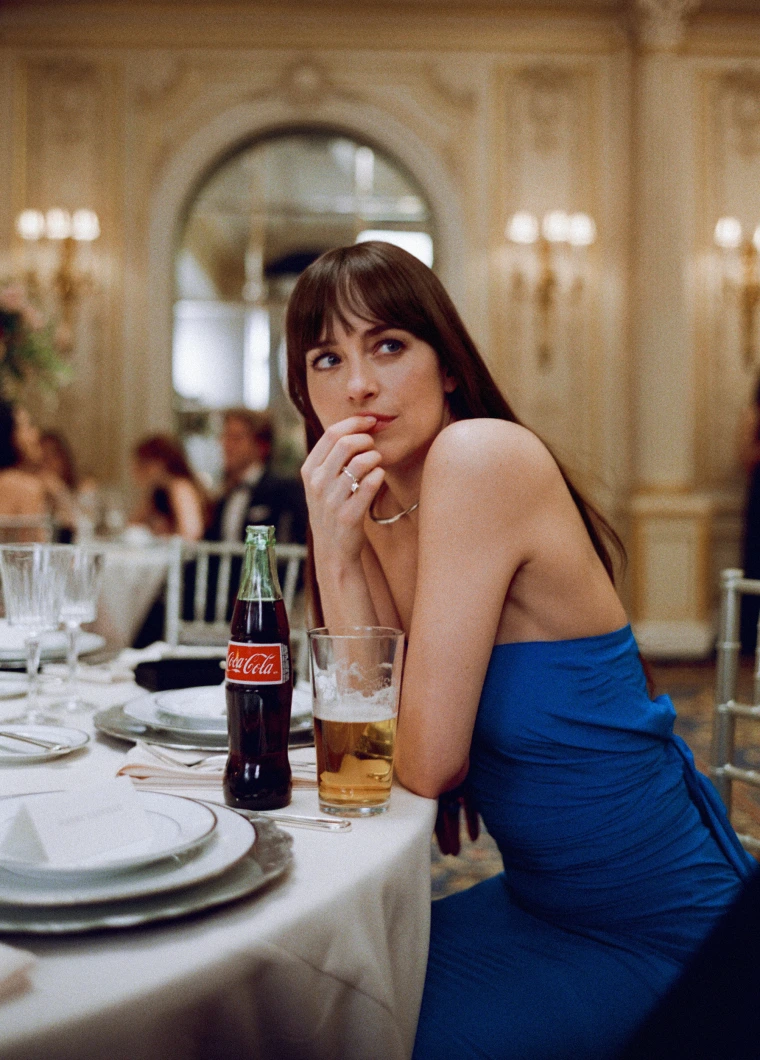 source
---
source
---
On the other hand, John (Chris Evans), that childhood sweetheart who refuses to give up his dream of becoming an actor, represents a nostalgia that never quite matures. It's okay to dream, but at 37, it's also important to have some direction in your life. His relationship with Lucy ended for real reasons —a lack of financial stability that she didn't want to repeat— and yet, after they reunite, he hopes to return to the relationship. And she also does several things that fuel that hope (even though she still doesn't like his lifestyle). Has anything changed? Not really. Returning to the relationship meant going back to the same place they were years ago. So I couldn't empathize with this love interest, even though I liked John's character.
And with Harry (Pedro Pascal), he was John's counterpart, representing that ideal of the «perfect man». But I had a hard time connecting with him. Lucy says, “You're too good to be true,” to which he replies, “I must have something bad about me.” But the film never delves into that. He's a flat character with no arc, no development, and no conflict. He's charming, yes, but he needed more depth to make sense within the story. I don't like it when a person is idealized.
Por otro lado, John (Chris Evans), ese amor de juventud que se rehúsa a dejar el sueño de ser actor, representa una nostalgia que no termina de madurar. Está bien soñar, pero a los 37 años también es importante tener algo de rumbo con respecto a tu vida. Su historia con Lucy terminó por razones reales -una falta de estabilidad económica que ella no quería repetir- y sin embargo, después de que se reencuentran, él tiene esperanzas de regresar a la relación. Y ella también realiza varias acciones que le alimentan dicha esperanza (a pesar de que no le sigue gustando el estilo de vida de él). ¿Hay algo que cambió? Realmente no. Volver a la relación, era volver al mismo lugar en que estaban años atrás. Entonces no pude empatizar con este interés amoroso, a pesar de que el personaje de John me cayó bien. Y con Harry (Pedro Pascal), fue una contraparte de John, él representaba ese ideal de «hombre perfecto». Pero a mí me costó conectar con él. Lucy lo dice: "eres muy bueno para ser verdad", a lo que él responde: "algo malo debo tener". Pero la película nunca ahonda en eso. Es un personaje plano, que no tiene arco, ni desarrollo, ni conflicto. Es encantador, sí, pero necesitaba más profundidad para tener sentido dentro de la historia. No me agrada cuando se idealiza a una persona.
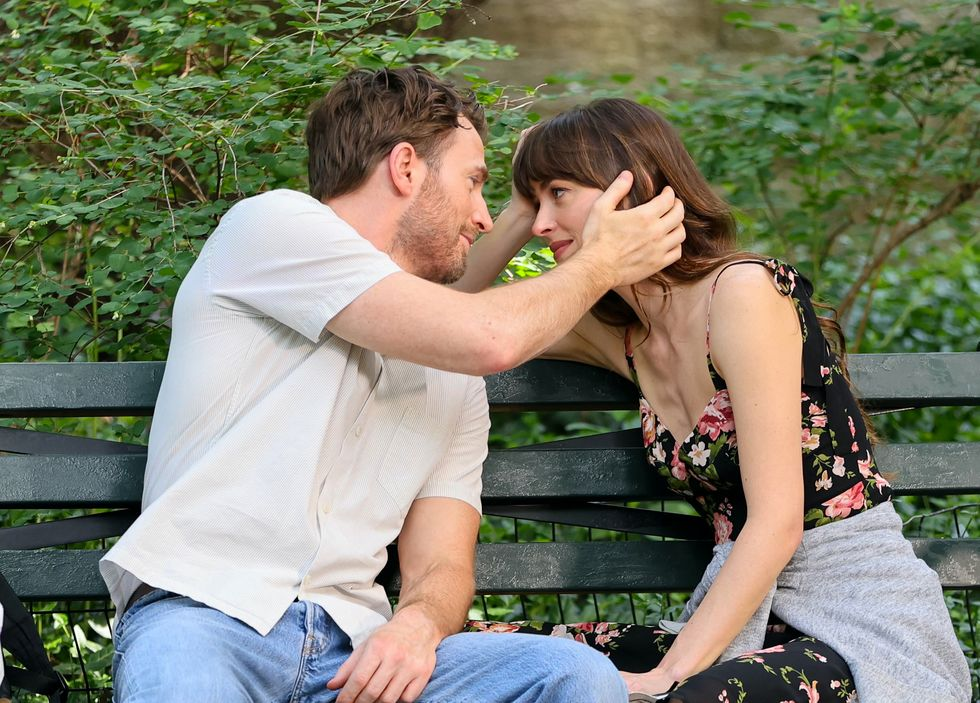 source
---
source
---
What I found least convincing about this story was the lack of internal consistency in the plot development.
Lucy spends the entire film proudly and loudly proclaiming that she wants to marry a rich man. She doesn't hide it or disguise it: she says it, repeats it, argues it. But when that man finally appears —Harry, who has it all— she doesn't choose him. Because now it turns out that no, what she always wanted was love. At what point is it even hinted that she is a romantic? Never. So why such a drastic change? I feel like they forced the cliché of «love conquers all» without really building it up. And it's not that it's wrong to change your mind, it's just that narratively, her decisions don't hold up.
This protagonist repeats that marriage is a contract, a business deal. But in the end, her big justification was: “Marriage is a business, but love must be part of the equation.” At what point did she show that she was genuinely in love with John? Throughout the story, neither of them grew, and she even rejected him when he had nothing, rejected him when she found him again, and suddenly... she always loved him. Sorry, but for me, that doesn't work. And I repeat: we all deserve a balance between love and economics, not to settle, but you can't build a story where the filters are supposedly “clear” from the start, and then destroy them without a logical evolution. I found it a rushed and dishonest ending for the plot itself.
Lo que menos me convenció de esta historia fue la falta de coherencia interna en el desarrollo de la trama. Lucy pasa toda la película defendiendo, con orgullo y voz alta, que quiere casarse con un hombre rico. No lo esconde ni lo disfraza: lo dice, lo repite, lo argumenta. Pero cuando, finalmente, aparece ese hombre -Harry, que lo tiene todo-, no lo elige. Porque ahora resulta que no, que lo que siempre quiso era el amor. ¿En qué momento se insinúa siquiera que ella es una romántica? Nunca. Entonces, ¿a qué se debe ese cambio tan drástico? Siento que forzaron el cliché de «el amor lo puede todo» sin realmente haberlo construido. Y no es que esté mal cambiar de opinión, es que narrativamente sus decisiones no se sostiene. Esta protagonista repite que el matrimonio es un contrato, un negocio. Pero al final, su gran justificación fue: "el matrimonio es un negocio, pero el amor debe estar en la ecuación". ¿En qué momento mostró estar genuinamente enamorada de John? Durante toda la historia no hubo crecimiento en ninguno de los dos, e incluso, ella lo rechaza cuando no tiene nada, lo rechaza cuando lo vuelve a encontrar, y de repente... siempre lo amó. Sorry, pero para mí, eso no funciona. Y repito: todos merecemos un equilibrio entre amor y economía, no conformarse, pero tampoco puedes construir una historia donde supuestamente los filtros son "claros" desde el inicio, y luego destruirlos sin una evolución lógica. Me pareció un cierre apresurado y poco honesto para la propia trama.
https://ew.com/thmb/PRR33ZXA02a6cIMbtSSOGvlThTA=/1500x0/filters:no_upscale():max_bytes(150000):strip_icc()/Dakota-Johnson-Chris-Evans-Materialists-061025-1687e2b8338645b485cdd295f52d5185.jpg source ---
To conclude, I sincerely believe that this was the kind of story in which the protagonist should have ended up alone😬 Not because she doesn't deserve love, but because none of her romantic interests truly represented what she was looking for. And she wasn't what they needed either. But I'll share my thoughts on the film anyway, since the film itself didn't give us any:
With John, what remains is the classic saying «love doesn't last on an empty stomach»: you can love someone very much, but if you don't share a compatible vision of life—in terms of goals, stability, pace—love alone is not enough. And yes, that also includes money. It doesn't represent “everything,” but it is an important part. With Harry, on the other hand, we have the reflection that love is necessary, another important part of that “everything.” A relationship needs emotion, connection, a desire to share everyday life. It's no use having a lot of money if you feel trapped in a cage.
In my opinion, the film doesn't have an honest conclusion. We were given a supposed romantic comedy, which has no comedy, let alone romance. It's not a bad movie—I've seen worse—but the problem is that it was overly idealized and didn't meet the standards. It stays the same throughout, without emotion or reflection. Flat. And I consider that one of the most disappointing things in a movie: that it leaves you with nothing.
P.S.: I still love the three actors, they just didn't have a good script✨
Para concluir, les digo sinceramente que esta era el tipo de historia en la que la protagonista debió quedarse sola😬 No porque no merezca el amor, sino porque ninguno de los intereses románticos representaba realmente lo que ella buscaba. Y ella no era lo que ellos necesitaban. Pero igual les comparto mi reflexión de la película, dado que la película en sí no nos dio ninguna: Con John, lo que queda es el dicho clásico de «amor con hambre no dura»: puedes querer mucho a alguien, pero si no comparten una visión de vida compatible -en metas, estabilidad, ritmo-, el amor por sí solo no basta. Y sí, eso también incluye el dinero. No representa el "todo", pero sí una parte importante. Con Harry, en cambio, tenemos la reflexión de que el amor es necesario, otra parte importante de ese "todo". Una relación necesita emoción, conexión, ganas de compartir el día a día. De nada sirve tener un montón de dinero, si te sientes atrapada en una jaula. La película, a mi parecer, no tiene una conclusión honesta. Nos regalaron una supuesta comedia romántica, que no tiene comedia, y mucho menos romance. No es una mala película, he visto peores, el problema es que fue muy idealizada y no cubrió los estándares. Se mantiene siempre igual, sin emoción, sin reflexión. Plana. Y eso lo considero como una de las cosas más decepcionantes en una película: que no te deje nada. PD: Sigo amando a los tres actores, simplemente no tuvieron un buen guión✨
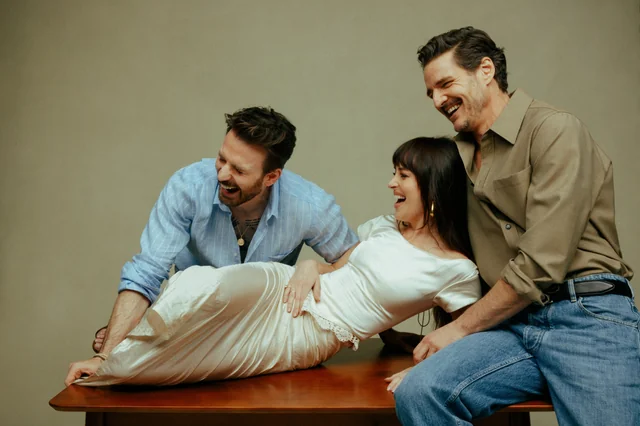 source
---
source
---
 ---
---